FTX
$ 0.0004 USD
$ 0.0004 USD
$ 36,647 0.00 USD
$ 36,647 USD
$ 6.30086 USD
$ 6.30086 USD
$ 43.65 USD
$ 43.65 USD
0.00 0.00 FTX
FintruX Network-related information
Issue Time
2018-04-23
Platform pertained to
--
Current coin price
$0.0004USD
Market Cap
$36,647USD
Volume of Transaction
24h
$6.30086USD
Circulating supply
0.00FTX
Volume of Transaction
7d
$43.65USD
Change
24h
0.00%
Number of Markets
6
Crypto token price conversion
Current Rate0
0.00USD
WikiBit Risk Alerts
1WikiBit has marked the token as air coin project for we have received overwhelming complaints that this token is a Ponzi Scheme. Please be aware of the risk!
FTX Price Chart
FintruX Network introduction
 Markets
Markets3H
0.00%
1D
0.00%
1W
0.00%
1M
-48.6%
1Y
-59.07%
All
-86.96%
| Aspect | Information |
|---|---|
| Short Name | FTT |
| Full Name | FTX Token |
| Founded Year | 2019 |
| Main Founders | Sam Bankman-Fried and Gary Wang |
| Support Exchanges | FTX, Binance, Huobi Global, Upbit, etc. |
| Storage Wallet | Most wallets that support ERC-20 tokens can store FTT, such as Metamask, Ledger, Trezor, Coinbase Wallet, etc. |
Overview of FTX
FTX is a cryptocurrency derivatives exchange platform that launched its native utility token, the FTX Token (FTT), in 2019. It was founded by Sam Bankman-Fried and Gary Wang. The FTT token is integrated into the FTX exchange platform and provides a variety of utilities and benefits to its holders. FTX exchange is among the primary platforms where FTT is traded, but it is also available on other exchanges like Binance, Huobi Global, and Upbit. As an ERC-20 token, FTT can be stored on any crypto wallet that supports this standard of tokens, such as Metamask, Ledger, Trezor, and Coinbase Wallet.
Pros and Cons
| Pros | Cons |
|---|---|
| Utility within FTX exchange | Primarily tied to FTX platforms success |
| Can be used to gain discounts on FTX platform fees | Less available on smaller exchanges |
| Regular buy-back and burn program | Regulatory uncertainties around cryptocurrencies |
| Fairly widely available on major exchanges | Potential for market volatility |
| Compatible with popular ERC-20 wallets | Some complexity in understanding token utilities |
Pros of FTX Token:
1. Utility within FTX exchange: FTX token can be used within the FTX exchange for multiple purposes. This increases the utility of the token and adds an intrinsic value to it.
2. Discounts on FTX platform fees: By owning and holding FTX tokens, users can gain notable discounts on trading fees on the FTX platform. This discount makes transaction costs cheaper for regular users thus incentivizing the continued use and holding of the FTX token.
3. Regular buy-back and burn program: The FTX exchange team periodically conducts buy-back and burn programs. This reduces the overall circulating supply of FTX tokens, which can potentially lead to an increase in token price due to scarcity.
4. Fairly widely available on major exchanges: FTX token is listed on many of the major cryptocurrency exchanges including FTX, Binance, and Huobi Global. This makes it accessible for a wide range of investors and traders.
5. Compatible with popular ERC-20 wallets: FTT is an ERC-20 token, which means it's compatible with popular wallets like Metamask, Ledger, and Trezor that support ERC-20 standard tokens. This allows for an easy storage solution for FTT token holders.
Cons of FTX Token:
1. Primarily tied to FTX platforms success: The success of FTX token is largely tied to that of the FTX platform. If the popularity or use of the FTX exchange declines, this could negatively impact the value of the FTX token.
2. Less available on smaller exchanges: While FTT is available on major exchanges, it has relatively less presence on smaller exchanges. This could limit access to the token for users of these smaller platforms.
3. Regulatory uncertainties around cryptocurrencies: The global regulatory landscape for cryptocurrencies is uncertain. Policies are not yet uniformly defined across countries and changes in regulations may pose a risk to FTT token holders.
4. Potential for market volatility: Like most cryptocurrencies, FTT can be subject to extreme market fluctuations. Investors should be prepared for potential losses due to such volatility.
5. Some complexity in understanding token utilities: While the FTT token offers many utilities, understanding and effectively leveraging these utilities could potentially be complex for new users or those unfamiliar with cryptocurrency platforms.
What Makes FTX Unique?
FTX markered its innovation in the cryptocurrency space by focusing on the derivative markets. It was one of the first cryptocurrency exchanges to provide a wide range of derivative products, including futures, leveraged tokens, prediction markets, and more. These offerings differentiated FTX from many other traditional cryptocurrency exchanges that mainly offer spot trading.
Another key innovation of FTX is its native token, the FTX token (FTT). It offers multiple utilities within the FTX platform, including providing trading fee discounts, collateral for futures positions, and a stake in the FTX ecosystem. These utility features are not common with many other cryptocurrencies, which often serve primarily as a medium of exchange or a store of value.
However, like any cryptocurrency, the FTX token's utility and value are heavily tied to the success and usage of the FTX platform itself. This interdependence is not unique to FTT and is a common characteristic among most platform-specific cryptocurrencies. Additionally, while the FTX token is available on several major exchanges, its presence on smaller exchanges is still limited compared to other established cryptocurrencies.
Circulation of FTX
The current circulating supply of FTX Token (FTT) is 328,890,000. This means that 328,890,000 FTT tokens have been released to the public and are available to be bought, sold, or used.The total supply of FTT tokens is 352,170,000, but the team has not yet announced when or how they plan to release the remaining tokens. It is possible that they will release the tokens gradually over time, or that they will hold a token sale or airdrop.
How Does FTX Work?
FTT is a utility token that is used on the FTX cryptocurrency exchange.
FTT holders are entitled to a number of benefits, including reduced trading fees, increased withdrawal limits, access to exclusive features, and staking rewards.
FTT is a popular token among cryptocurrency traders and investors. It is backed by a strong team and has a number of utility cases.
Exchanges to Buy FTX
1. FTX: As the native exchange platform, FTX supports FTT trading. It allows transactions with various pairs like FTT/USD, FTT/USDT, and FTT/BTC.
2. Binance: Binance, one of the largest cryptocurrency exchanges globally, also lists FTT and supports numerous trading pairs including FTT/BTC, FTT/ETH, FTT/USDT, and FTT/BUSD.
3. Huobi Global: The platform supports transactions of FTT with pairs like FTT/USDT, FTT/BTC, and FTT/ETH.
4. CoinEx: CoinEx allows purchases of FTT with pairs such as FTT/USDT.
5. Bittrex: Bittrex exchange supports transactions with the FTT/USDT trading pair.
6. Bitfinex: Bitfinex provides support for FTT trading with the FTT/USD trading pair.
7. KuCoin: KuCoin allows trading of FTT with trading pairs like FTT/BTC and FTT/ETH.
8. WazirX: On the WazirX platform, users can buy FTT with the FTT/USDT trading pair.
9. Poloniex: Poloniex supports FTT trading with pairs such as FTT/USDT.
10. OKEx: OKEx lists FTT and supports the FTT/USDT trading pair among others.
Please note that trading pairs can change based on the platform's discretion. Always verify the available trading pairs on the chosen platform before planning any transactions.
How to Store FTX?
FTX Token (FTT) is an ERC-20 token, it can be stored in any wallet that supports this standard. Wallets vary based on their purpose and the level of security they provide. Here are the different types of wallets that can store FTT:
1. Web Wallets: These wallets run on internet browsers and can be accessed from any device with a connection. Metamask is a popular web wallet that supports ERC-20 tokens like FTT.
2. Mobile Wallets: These are apps installed on a smartphone. An example of mobile wallets that support ERC-20 tokens is Trust Wallet.
3. Desktop Wallets: These are installed on a PC or laptop and provide better security since they can only be accessed from the device they are installed on. MyEtherWallet is a desktop wallet that supports FTT.
4. Hardware Wallets: These are the most secure type of wallet since they store tokens offline on a physical device, making them immune to online threats. Examples include Ledger and Trezor.
5. Paper Wallets: These are physical printouts of a users public and private keys. They provide a high level of security since they are entirely offline, but can be cumbersome to use for frequent transactions.
6. Software Wallets: Software wallets are downloaded and installed on a device. Exodus is one such wallet that supports ERC-20 tokens, including FTT.
As always, it is recommended to do your own research before deciding upon a wallet to store your FTX tokens in, considering factors like security, ease of use, convenience, and cost. Regardless of the type of wallet chosen, it is important to keep private keys secure and backed up in a safe place.
Should You Buy FTX?
Based on its design and utility, the FTX Token (FTT) may be suitable for three main categories of individuals:
1. Active Traders: Active traders who regularly buy and sell cryptocurrencies on the FTX exchange could benefit from holding FTT due to the trading fee discounts and other benefits it provides.
2. Crypto Derivatives Traders: Given FTX's focus on providing a wide range of derivative products, traders who specialize in or are interested in crypto derivatives might find value in investing in FTT.
3. Long-term Investors: Individuals who have faith in the long-term success of the FTX platform and appreciate the token's utilities may decide to buy and hold FTT as a long-term investment.
However, any investment in cryptocurrency comes with inherent risks due to market volatility and regulatory uncertainties. It's advisable for potential investors to consider the following:
1. Research: Fully understand the FTX Token, its use cases, the FTX platform, and the team behind it before investing.
2. Diversification: Rather than investing all capital into one cryptocurrency, spreading investments across a range of assets can help to manage risk.
3. Risk Tolerance: Understand your personal risk tolerance. Cryptocurrencies can be volatile, and you should only invest what you can afford to lose.
4. Professional Advice: It's often beneficial to consult with a financial advisor or someone knowledgeable about cryptocurrencies before making an investment.
Please note that this advice is provided in a general context and different investors might have different specifics that could alter the suitable investment strategy for them. Always conduct personal research and consult with a professional if necessary.
Conclusion
FTX Token (FTT) is the native utility token of the FTX platform, a cryptocurrency exchange known for its extensive focus on derivatives products. Introduced in 2019 by Sam Bankman-Fried and Gary Wang, FTT has carved out a unique place in the crypto market due to its multifaceted utility on the FTX platform.
FTT's value is intrinsically tied to the success of the FTX platform, with its utilities including trading fee discounts, collateral for futures positions on the FTX platform, and participation in periodic buy-back and burn programs. Being an ERC-20 token, it's also compatible with numerous popular wallets and has presence on several renowned exchanges.
As for its prospects, much will depend on the continued success and growth of FTX, given the token is intrinsically linked to the exchange's performance. If FTX continues to grow and attracts more users to its platform, it could potentially result in increased demand for FTT, which might cause appreciation in value. Yet investment in FTT, like any other cryptocurrency, comes with certain risks, including market volatility and regulatory uncertainties.
As with any investment, conducting thorough research and understanding one's risk tolerance is crucial. The utility of FTT within the FTX exchange could potentially be profitable to active users of the platform. However, prospective investors should always consider the risks and avoid investing more than they can afford to lose. It's also suggested to seek advice from financial professionals before making any investment decisions.
FAQs
Q: What is FTX Token?
A: FTX Token or FTT is the proprietary utility token for the FTX cryptocurrency derivatives exchange.
Q: Who founded FTX and the FTX Token?
A: FTX and the FTX Token were established by Sam Bankman-Fried and Gary Wang.
Q: How does the FTX Token function within the FTX exchange?
A: FTT holders can utilize the token on the FTX platform for various purposes, such as getting discounts on trading fees, using it as collateral for futures positions, and participating in periodic token buy-back and burns.
Q: What cryptocurrencies can be traded against FTT?
A: FTT can be traded against popular cryptocurrencies such as BTC, ETH, USDT, and BUSD on various exchanges.
Q: Where can FTT be stored?
A: As an ERC-20 token, FTT can be stored in any wallet that supports ERC-20 tokens, including Metamask, Ledger, Trezor, and more.
Q: What risks do FTT investors face?
A: Investors may face market volatility, regulatory changes, and potential loss of value if the FTX platform's performance declines.
Q: How can potential FTT investors mitigate risk?
A: Investors can mitigate risk through thorough research, investment diversification, understanding their personal risk tolerance, and consulting with a financial advisor.
Q: Can holding FTT potentially yield profits?
A: Holding FTT could potentially yield profits if the FTX platform continues to succeed and grow, driving demand for the token, but the cryptocurrency markets' inherent uncertainties always pose a risk.
Q: What kind of wallets can store FTT?
A: FTT can be stored in various wallets, including web, mobile, desktop, hardware, and software wallets, as long as they support ERC-20 tokens.
Q: What kind of investors might find FTT beneficial?
A: Active traders on the FTX platform, crypto derivatives traders, and long-term investors believing in the platform's future might find investing in FTT beneficial.
Risk Warning
Investing in cryptocurrencies requires an understanding of potential risks, including unstable prices, security threats, and regulatory shifts. Thorough research and professional guidance are advised for any such investment activities, recognizing these mentioned risks are just part of a wider risk environment.
FTX Good investment market
- 1
FintruX Network User Reviews
FintruX Network News
TokenBitcoins Biggest Stress Test Since FTX: What the Data is Telling Us
Bitcoin and the broader crypto market has experienced a complete market reset over the past week and
2026-02-06 22:02
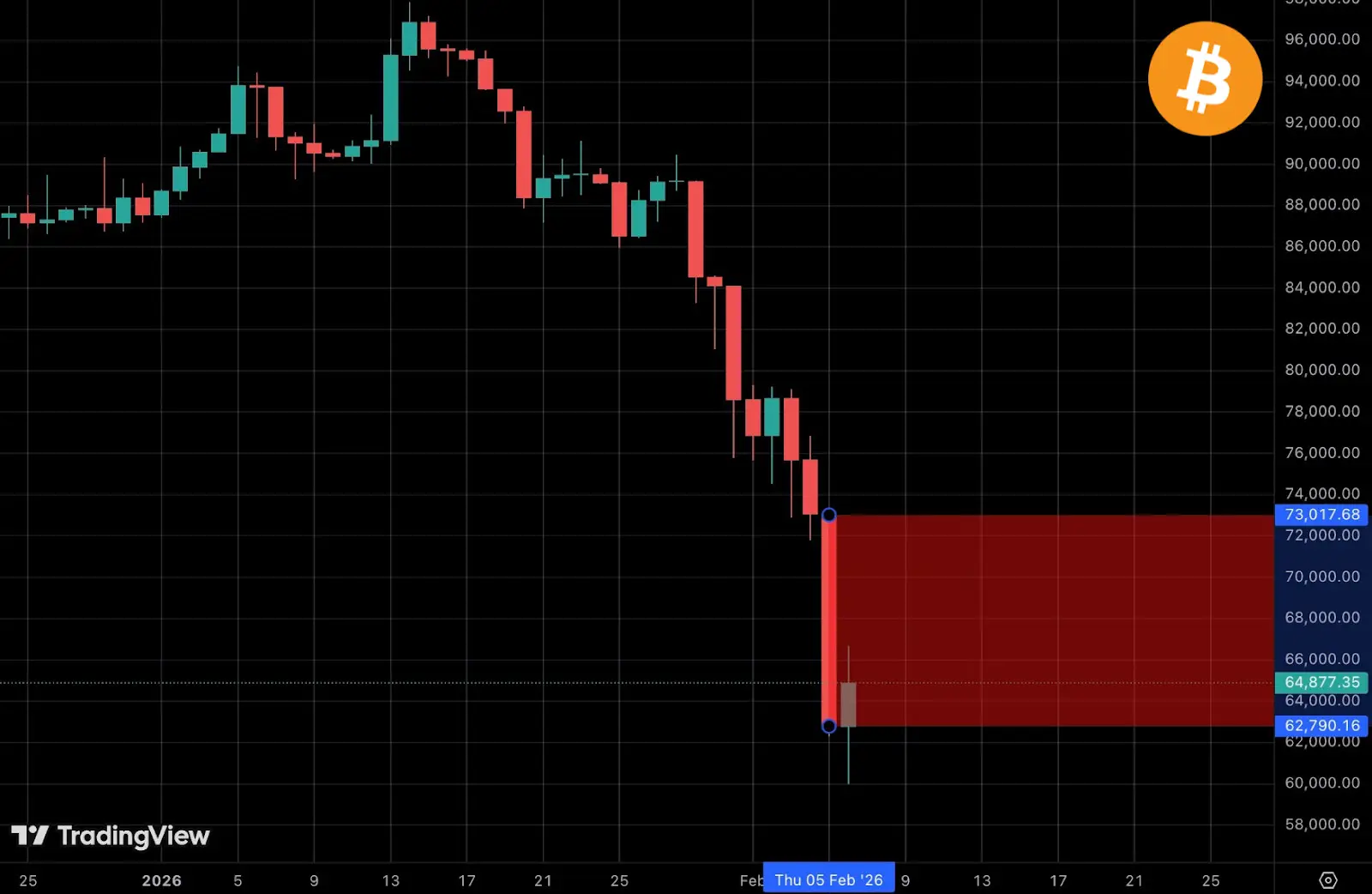
ExchangeBitcoin spirals toward $60,000, heading to worst one-day drawdown since FTX blowup
Bitcoin $BTC$71,091.27 tumbled to $63,000 during early afternoon U.S. hours as this week's crypto se
2026-02-06 05:25
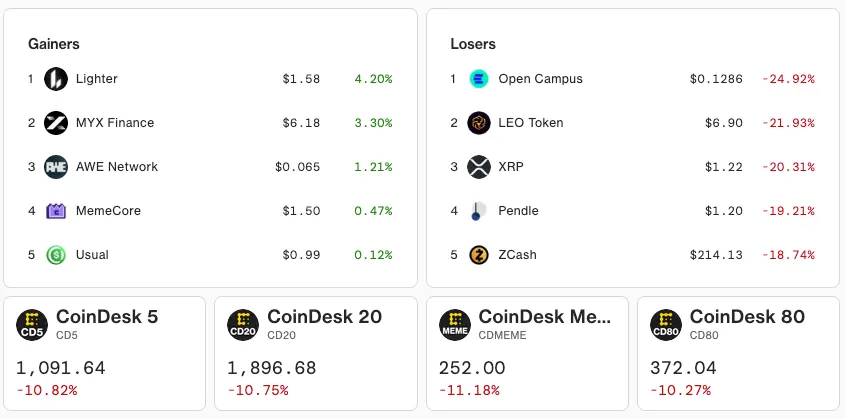
ExchangeFrom FTX fallout to fresh capital: Former US chief raises $35M for new exchange
Former FTX US president Brett Harrison has raised $35 million to build an institutional trading platform offering crypto, equities, futures and perpetuals.
2025-12-24 05:34

TokenSilvergate Bank lawsuit calls for FTX, Alameda clients to weigh in on $10M settlement
One of the class-action lawsuits filed against the cryptocurrency-friendly Silvergate Bank in Califo
2025-12-18 04:02
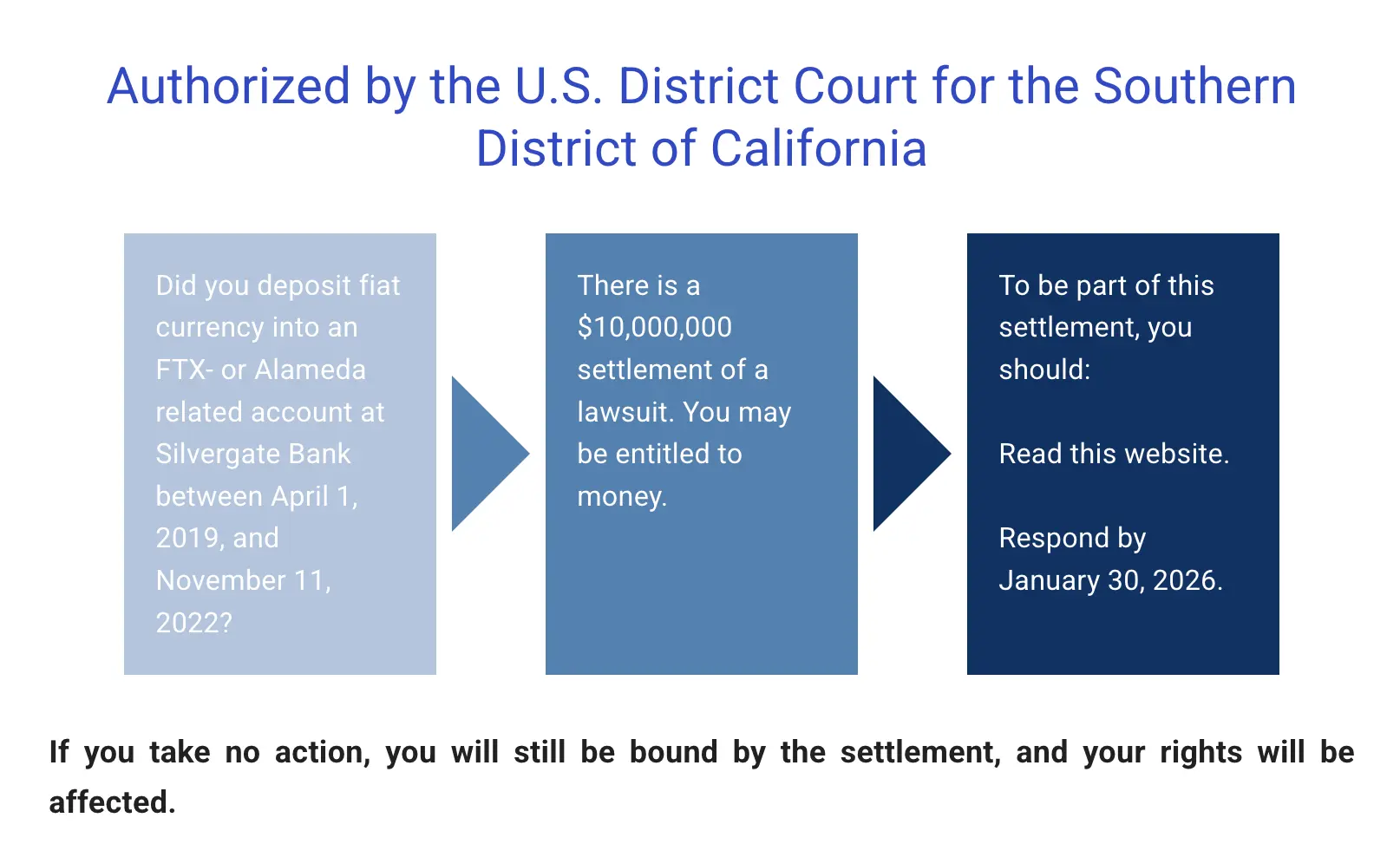
ExchangeRobinhood moves into prediction markets with FTX-linked acquisition: Report
LedgerX
2025-11-27 02:10

ExchangeRobinhood moves into prediction markets with FTX-linked acquisition
Robinhood and Susquehanna International Group are acquiring a 90% stake in the FTX-linked company LedgerX, which was later rebranded as MIAXdx.
2025-11-27 02:10

ExchangeBitcoin realized losses rise to FTX crash levels: Where is the bottom?
Realized losses on Bitcoin have risen to levels last seen during the FTX crash, with short-term holders driving the capitulation, according to Glassnode.
2025-11-21 21:59

TokenAnalysts Liken Stress Levels to FTX Era as Crypto Liquidations Exceed $1.1 Billion
The cryptocurrency market faced $1.1 billion in liquidations over 24 hours on November 14, 2025, wit
2025-11-14 21:03
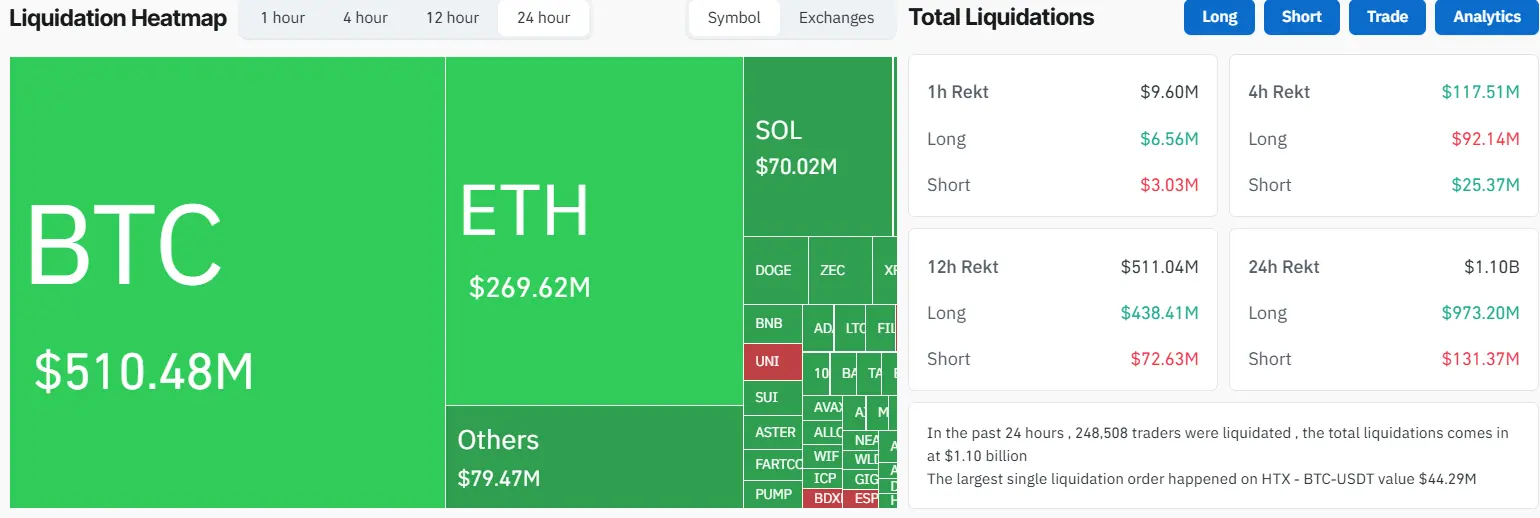
TokenFTX creditor says real recovery could be as low as 9% amid inflated crypto prices
FTX creditors could receive just 9% to 46% of their crypto holdings‘ real value after adjusting for today’s high Bitcoin, Ethereum and Solana prices, according to creditor rep Sunil.
2025-11-02 19:34
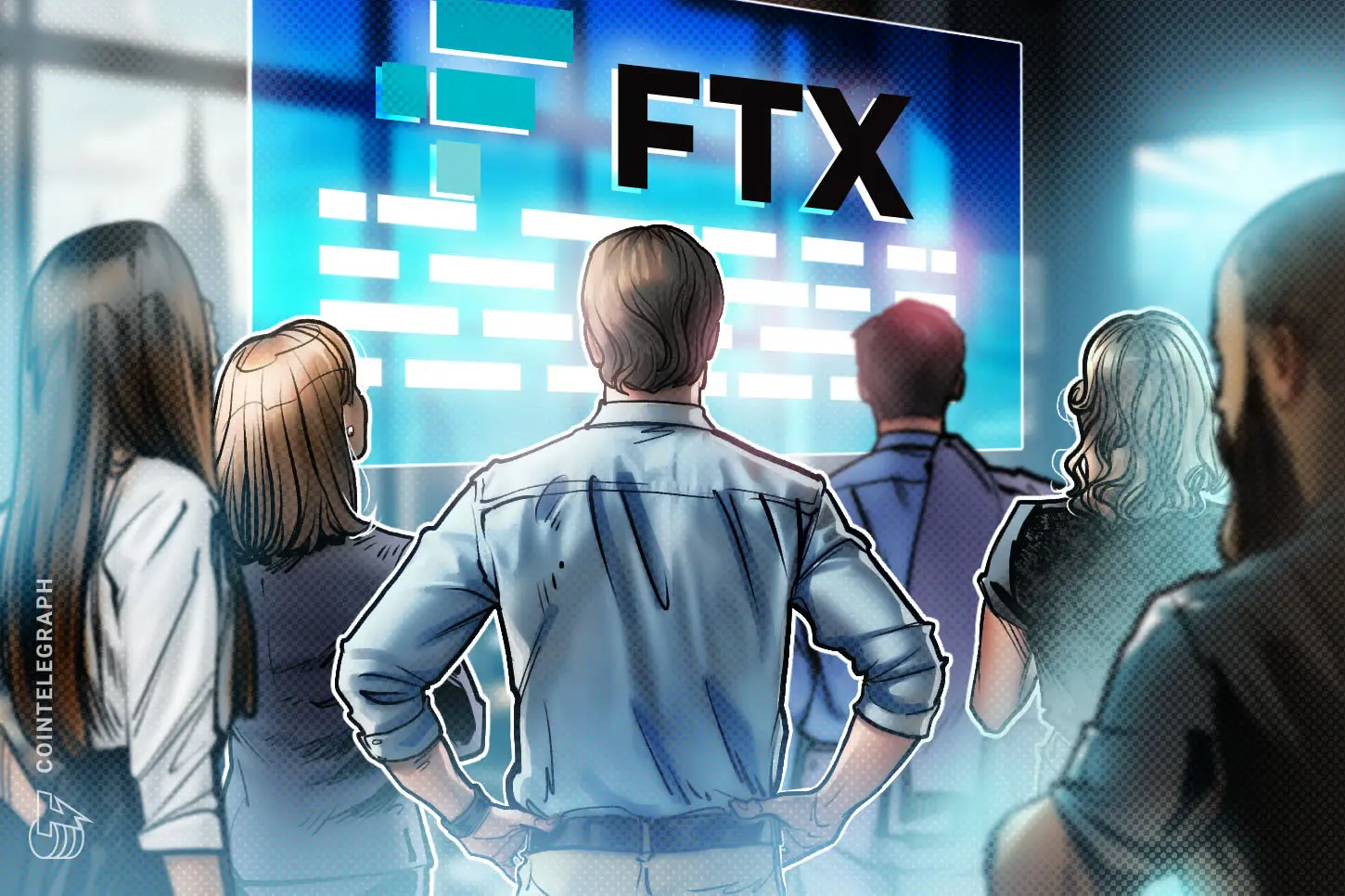


689 ratings
View all comments